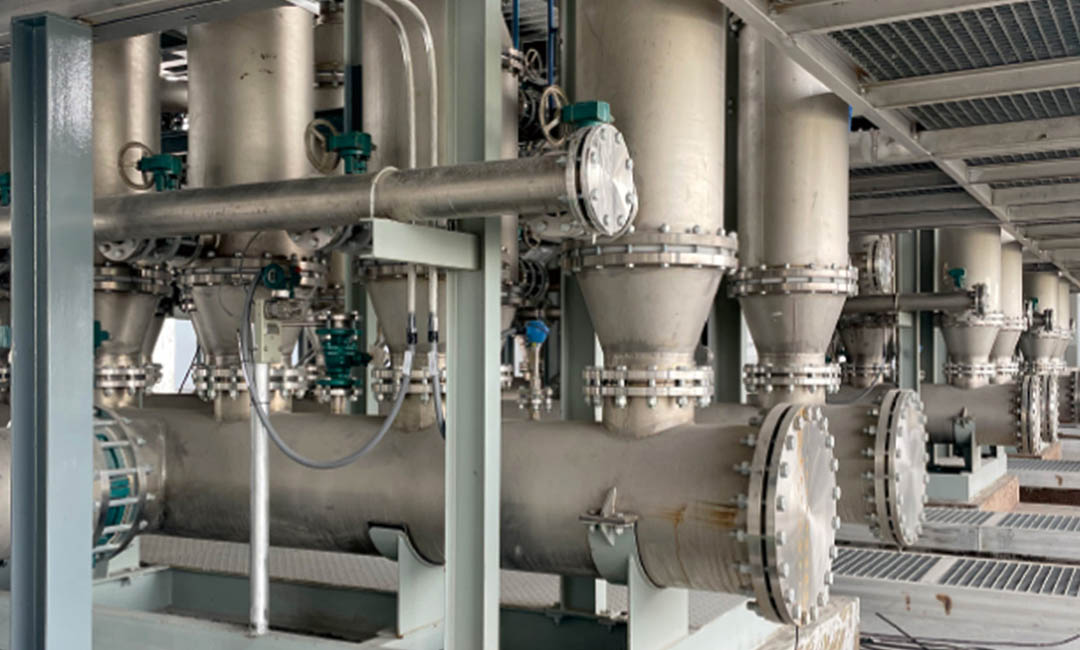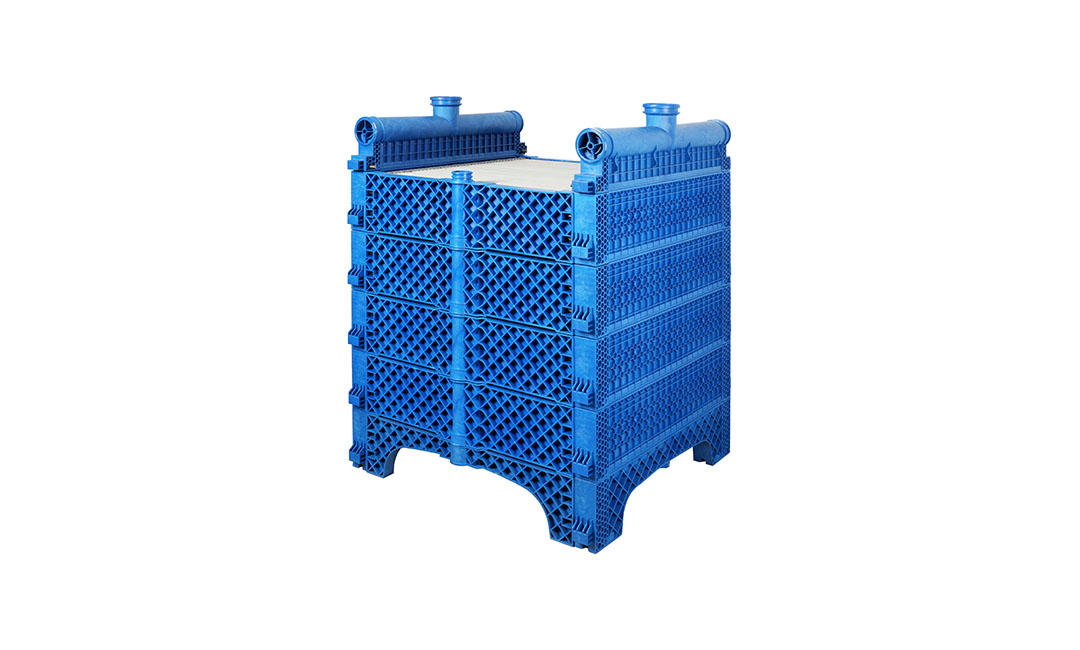Superior Chemical Resistance of SiC Membranes
Silicon carbide (SiC) membranes are becoming increasingly popular in various industries due to their superior chemical resistance in harsh environments. These membranes are essential for applications where traditional materials would quickly degrade or fail, making them a valuable asset for industries such as wastewater treatment, oil and gas production, and chemical processing.
One of the key advantages of SiC membranes is their exceptional resistance to corrosive chemicals. Traditional materials like polymeric membranes or stainless steel are susceptible to degradation when exposed to aggressive chemicals, leading to a shortened lifespan and increased maintenance costs. In contrast, SiC membranes can withstand a wide range of corrosive substances, including acids, bases, and organic solvents, without losing their structural integrity.
This superior chemical resistance is attributed to the unique properties of SiC, which is a compound of silicon and carbon known for its high strength, hardness, and thermal conductivity. The crystalline structure of SiC gives it a high degree of chemical inertness, making it resistant to attack from most acids and alkalis. This property allows SiC membranes to maintain their performance and efficiency even in the presence of harsh chemicals, ensuring reliable operation in demanding environments.
In addition to their resistance to corrosive chemicals, SiC membranes also exhibit excellent thermal stability. They can operate at high temperatures without losing their mechanical properties, making them ideal for applications where elevated temperatures are required. This thermal stability allows SiC membranes to be used in processes such as high-temperature filtration, steam sterilization, and thermal oxidation, where traditional materials would fail due to thermal degradation.
The combination of superior chemical resistance and thermal stability makes SiC membranes a versatile solution for a wide range of applications in harsh environments. They can be used in industries such as desalination, pharmaceutical manufacturing, and semiconductor production, where the presence of corrosive chemicals and high temperatures pose a challenge to traditional membrane materials. By choosing SiC membranes, industries can ensure reliable and efficient operation in even the most demanding conditions.
Furthermore, SiC membranes offer long-term cost savings due to their durability and low maintenance requirements. Unlike traditional materials that require frequent replacement and repair, SiC membranes have a longer lifespan and can withstand harsh operating conditions without degradation. This results in reduced downtime, lower maintenance costs, and increased productivity for industries that rely on membrane technology for their processes.
Overall, the superior chemical resistance and thermal stability of SiC membranes make them essential in harsh environments where traditional materials would fail. Their ability to withstand corrosive chemicals, high temperatures, and mechanical stress sets them apart as a reliable and cost-effective solution for industries looking to improve their operational efficiency and reliability. As the demand for high-performance membranes continues to grow, SiC membranes are poised to play a crucial role in meeting the needs of industries operating in challenging environments.
Enhanced Thermal Stability of SiC Membranes
Silicon carbide (SiC) membranes are becoming increasingly popular in various industries due to their exceptional properties, including high thermal stability. In harsh environments where extreme temperatures are common, such as in the chemical and petrochemical industries, SiC membranes play a crucial role in ensuring the efficient operation of processes. The enhanced thermal stability of SiC membranes makes them essential for withstanding high temperatures without compromising their performance.
One of the key advantages of SiC membranes is their ability to maintain their structural integrity at elevated temperatures. Unlike traditional materials like polymers or ceramics, SiC membranes can withstand temperatures up to 800°C or even higher, depending on the specific grade of SiC used. This high thermal stability allows SiC membranes to be used in applications where other materials would fail, making them ideal for harsh environments where extreme temperatures are a constant challenge.
The enhanced thermal stability of SiC membranes is attributed to the unique properties of silicon carbide, which is a compound of silicon and carbon known for its high melting point and excellent thermal conductivity. These properties make SiC membranes highly resistant to thermal shock and degradation, ensuring their performance remains consistent even in the most demanding conditions. This thermal stability is crucial for industries where processes operate at high temperatures, as it ensures the reliability and longevity of SiC membranes in harsh environments.

In addition to their high thermal stability, SiC membranes also offer superior chemical resistance, making them ideal for applications where exposure to corrosive substances is common. The combination of thermal stability and chemical resistance makes SiC membranes a versatile solution for a wide range of industries, including oil and gas, water treatment, and pharmaceuticals. In these industries, SiC membranes are used to separate and purify liquids and gases, providing a reliable and efficient solution for challenging environments.
The enhanced thermal stability of SiC membranes also allows for higher operating temperatures, which can lead to increased process efficiency and cost savings. By withstanding high temperatures, SiC membranes can operate in conditions where other materials would degrade, allowing for more aggressive process conditions and improved performance. This increased thermal stability not only extends the lifespan of SiC membranes but also enhances their overall efficiency, making them a valuable asset in harsh environments.

Furthermore, the thermal stability of SiC membranes can also improve the safety of processes in harsh environments. By withstanding high temperatures without degrading, SiC membranes reduce the risk of system failures and potential hazards, ensuring the safety of personnel and equipment. This added level of safety is crucial in industries where the consequences of a system failure can be catastrophic, highlighting the importance of using high-temperature SiC membranes in harsh environments.
In conclusion, the enhanced thermal stability of SiC membranes makes them essential in harsh environments where high temperatures are a constant challenge. Their ability to withstand extreme temperatures without compromising performance, combined with superior chemical resistance, makes SiC membranes a reliable and efficient solution for a wide range of industries. By utilizing high-temperature SiC membranes, industries can improve process efficiency, reduce costs, and enhance safety in challenging environments, making them an indispensable asset in today’s industrial landscape.
Increased Durability and Longevity of SiC Membranes
Silicon carbide (SiC) membranes have become increasingly popular in various industries due to their exceptional properties, especially in harsh environments where traditional materials may fail. One of the key reasons for their popularity is their high-temperature resistance, making them essential for applications that require durability and longevity.
In harsh environments such as high-temperature and corrosive conditions, traditional membranes made of materials like polymers or ceramics may degrade quickly, leading to frequent replacements and increased maintenance costs. SiC membranes, on the other hand, can withstand extreme temperatures up to 1000°C, making them ideal for applications in industries such as petrochemical, wastewater treatment, and metal processing.
The increased durability and longevity of SiC membranes can be attributed to their unique structure and composition. SiC is a compound of silicon and carbon, known for its high strength, hardness, and thermal conductivity. These properties make SiC membranes highly resistant to thermal shock, chemical corrosion, and mechanical stress, ensuring their performance and reliability in harsh environments.
Furthermore, SiC membranes have a high surface area and pore size distribution, allowing for efficient filtration and separation processes. This is particularly important in industries where the quality of the final product is crucial, such as pharmaceuticals, food and beverage, and semiconductor manufacturing. The superior filtration capabilities of SiC membranes result in higher product yields, reduced energy consumption, and lower operating costs.
Another advantage of SiC membranes is their low fouling propensity, which is a common issue in membrane filtration systems. Fouling occurs when particles, microorganisms, or organic matter accumulate on the membrane surface, reducing its efficiency and requiring frequent cleaning or replacement. SiC membranes have a smooth and hydrophilic surface that minimizes fouling, leading to longer operational lifetimes and lower maintenance costs.
In addition to their durability and longevity, SiC membranes offer other benefits that make them essential in harsh environments. For example, SiC membranes are chemically inert and non-reactive, making them suitable for handling aggressive chemicals and solvents. This is particularly important in industries where the risk of contamination or product loss is high, such as in the production of specialty chemicals or pharmaceuticals.
Furthermore, SiC membranes are easy to clean and maintain, requiring minimal downtime and reducing operational disruptions. This is crucial for industries that operate 24/7 and cannot afford prolonged shutdowns for maintenance or repairs. The ease of maintenance of SiC membranes translates to higher productivity, improved process efficiency, and overall cost savings for businesses.
In conclusion, the increased durability and longevity of high-temperature SiC membranes make them essential in harsh environments where traditional materials may fail. Their unique properties, such as high-temperature resistance, chemical inertness, low fouling propensity, and ease of maintenance, make SiC membranes a preferred choice for industries that require reliable and efficient filtration solutions. As technology continues to advance, SiC membranes are expected to play a crucial role in meeting the growing demand for sustainable and cost-effective filtration systems in various industrial applications.

